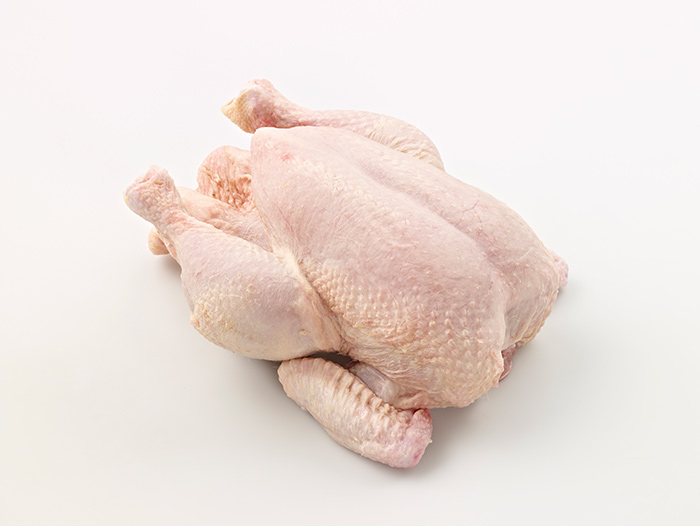In response to a CDC report revealing that the U.S. is falling short of its goals to reduce foodborne illness, the Pew Charitable Trusts says livestock interventions on farms will reduce the threat of pathogens on our forks. For the poultry industry, which has a widespread Salmonella problem with turkey and chicken farms, it’s hard to know why some of these interventions -such as poultry flock vaccinations, haven’t already been enacted. Their success isn’t theoretical.
In the 1990s, the most common strain of Salmonella was Salmonella Typhimurium, which causes typhoid fever; the third-most-common strain was Salmonella Heidelberg, according to the CDC. The prevalence of these strains, which share an antigen, declined dramatically after the poultry industry began vaccinating chickens against Salmonella Typhimurium which is now the third-most-common strain in the U.S. while Salmonella Heidelberg has dropped out of the top 20.
In addition to vaccinations, Pew also recommends the use of probiotics and “biosecurity programs to promote clean housing and feed” to control Salmonella on poultry farms. These changes could go a long way in reducing the incidence of foodborne illness form Salmonella. Last year, 70 percent of all reported foodborne illnesses analyzed by the CDC were linked to Salmonella or Campylobacter, two bacteria commonly associated with poultry.
Romaine Lettuce, E. coli and Agricultural Water
The CDC report looked at foodborne illness data from 2016 to 2019. During this time period, there was a 34 percent increase in illnesses from Shiga toxin-producing E. coli (STEC) thanks in large part to multiple outbreaks linked to romaine lettuce.
Although the U.S. Food and Drug Administration (FDA) said it never found the point of origin for these outbreaks, the outbreak strain of the Yuma, Arizona-grown romaine outbreak was isolated from an irrigation canal. This has prompted many food safety advocates, to call for new regulation of the use of agricultural water in the produce industry. Pew says these regulations should include water testing to avoid contamination of their crops.
Taken as a whole, the organization says, “these scientific, data-driven strategies and practices can strengthen public health and help reinvigorate the nation’s efforts to reduce foodborne disease.
Related
Landmark Salmonella Lawsuit Yields $6.5 Million Verdict
Empire Kosher Chicken Salmonella Outbreak Sickens 17, 1 Dead
Ground Turkey Salmonella Lawsuit: Butterball, Jennie-O
Chicken Salmonella Outbreak Ends with 129 Sick, 1 Death
Turkey Salmonella Outbreak Sickens 23 in Illinois
